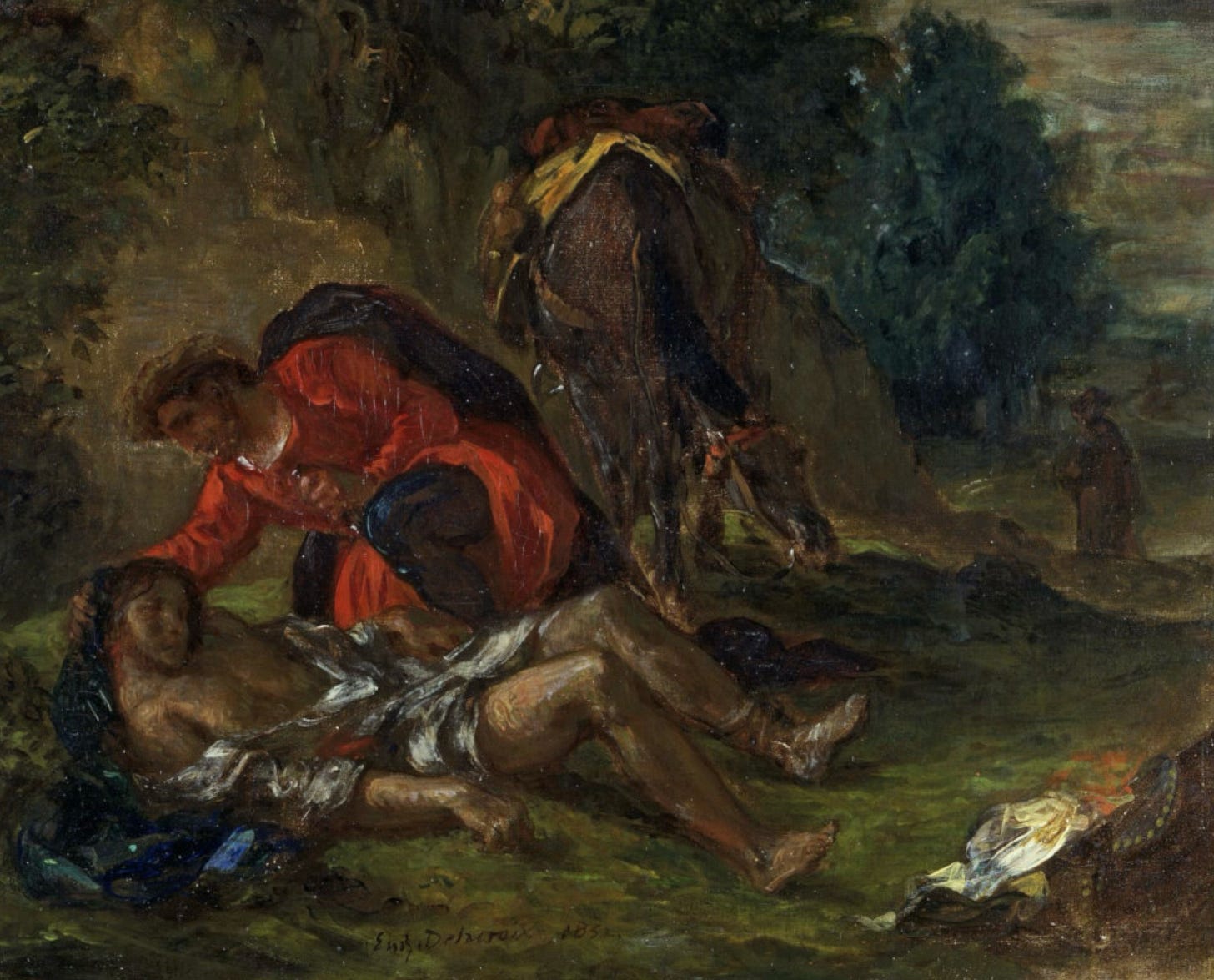What Does It Mean to Show Mercy?
“Blessed are the merciful, for they will be shown mercy.” Matthew 5:7 (NIV)
The next blessing Jesus offers in the Beatitudes is for people who demonstrate mercy. The original Greek word for mercy is the noun eleos, which is defined as “kindness or concern expressed for someone in need”. Some possible translations include mercy, compassion, pity, sympathy, or clemency. In the Bible, mercy is also used as an adjective (merciful) and a verb (to show mercy).
Eerdman’s Dictionary of the Bible defines mercy like this:
“The compassionate disposition to forgive someone or to offer aid, assistance, or help to someone in need. Closely connected are such concepts as grace, goodness, love, loving-kindness, compassion, and patience.”
As Eerdman’s says, mercy shares a lot in common with other Biblical virtues like grace, love, forgiveness, charity, and compassion. They all have to do with loving people the way Jesus loves us. They probably have more similarities than differences, but in an effort to help explain what makes mercy unique among these Christian virtues, I’ll share one thing that helps it stand out from the others.
Mercy is used more often when there is a tangible need like poverty, illness, or an injury, rather than a spiritual issue like sin and the need for forgiveness. Author Richard Linsky explains that this is the primary difference between mercy and grace:
“The noun eleos (mercy) . . . always deals with what we see of pain, misery and distress, these results of sin; and charis (grace) always deals with the sin and guilt itself. The one extends relief, the other pardon; the one cures, heals, helps, the other cleanses and reinstates.”
That being said, it’s possible that Linksy is overstating this distinction to a certain degree. While John Stott does tend to agree with Linksy (“mercy is compassion for people in need”), another Bible scholar named Michael Wilkins says that “the merciful” from Matthew 5:7 refers to people “who demonstrate forgiveness toward the guilty and kindness for the hurting and needy” (emphasis added). For Wilkins, mercy can apply to both spiritual or physical needs. Then again, almost all forms of suffering are a direct or indirect result of sin in our world.
The one thing we know for sure is that a merciful person seeks to help others get through whatever trial, struggle, or misfortunate they are experiencing — regardless of the specifics of the situation.
Instances of “Mercy” in the New Testament
One helpful way of getting to know the meaning of a word in the Bible is to study how it’s used in other contexts. One place we see this word is in the Gospels, when sick or injured individuals cry out to Jesus for physical healing (e.g. “Lord, have mercy” in Matthew 20:30).
The word is also used in reference to the Parable of the Good Samaritan. When asked which of the men in the story best demonstrated the command to love their neighbor, the man in the crowd answered “the one who had mercy on him” (Luke 10:37).
Mercy is also a prominent part of the Parable of the Unmerciful Servant (Matthew 18:21-25), a parable that captures the hypocrisy of receiving God’s mercy while refusing to extend it to others.
As you can see, these examples do tend to emphasize meeting people’s physical needs and having compassion on their physical circumstances. But in addition to that theme, many of the instances of “mercy” in the New Testament are used to describe the heart of God or Jesus:
God is rich in mercy (Ephesians 2:4).
God saved us because of his mercy (Titus 3:5).
Jesus is a merciful and faithful high priest (Hebrews 2:17).
Mercy is something that God gives us when we approach his throne of grace (Hebrews 4:16). And, as Paul’s life shows, this gift of mercy is for everyone, even the chief of sinners (1 Timothy 1:13-16).
But mercy is also something God desires to see in our lives as his followers (“I desire mercy, not sacrifice” in Matthew 9:13). Going back to the Parable of the Unmerciful Servant, God expects those who have received mercy to be the first ones to show it when the need arises. John Stott phrases that expectation like this:
“Our God is a merciful God and shows mercy continuously; the citizens of his kingdom must show mercy too.”
Scot McKnight agrees that our motivation for showing mercy to others is the golden rule, plus fact that we have already received mercy from God:
“The ‘merciful’ are those who, because they do to others as they would want done to themselves and because they have experienced God’s merciful love, empathize and show compassion to others. Inherent in works of mercy is the self-denying virtue of entering into the injustices and tragedies experienced by others.”
Mercy in the Old Testament
The Apostles who wrote the New Testament relied primarily on the Greek Translation of the Old Testament, which was produced a few hundred years before Jesus’ time. One way that can be helpful for us is that it gives us specific examples of New Testament words (like eleos / mercy) being used in the Old Testament, which was originally written in Hebrew.
According to the Theological Lexicon of the New Testament, eleos (mercy) is used primarily to translate the Hebrew word chanan, which means to show favor or grace. In context, this refers to “a freely given favor, a generous gift” and “preferential love for a certain person that is shown in the generosity with which favors are granted” (TLNT). In addition, eleos is used to translate rahum, the Hebrew word for mercy, pity, and tender love. It’s also used 172 times to translate hesed, the famous Hebrew word for unfailing love.
As an aside, I find it fascinating that those three words (chanan, rahum, and hesed) represent three out of the five characteristics God uses to describe himself in Exodus 34:6. “Merciful” seems to be a good umbrella term that captures the heart of God. That means when Jesus talks about the merciful, he is talking about people who reflect God’s character.
Here are a few specific instances of “mercy” in the Old Testament:
“Yahweh! The LORD! The God of compassion and mercy! I am slow to anger and filled with unfailing love and faithfulness.” -Exodus 34:6 (NLT)
“Have mercy on me, O God” — The opening line of David’s prayer of confession - Psalm 51:1
“Then Naomi said to her two daughters-in-law, “Go back, each of you, to your mother’s home.a May the LORD show you kindness [hesed/eleos], as you have shown kindness to your dead husbands and to me.” -Ruth 1:8
The doxology / priestly blessing in Numbers 6:25, “The Lord… be gracious [chanan/eleos] to you”
A Promise for the Merciful
Jesus says that those who show this kind of mercy to others can expect to receive mercy in return. God looks with favor on those who generously show grace, mercy, and compassion to others in distress. What is something you can do today to develop this kind of heart for others?





